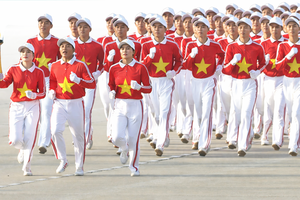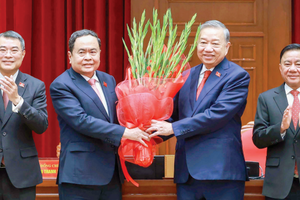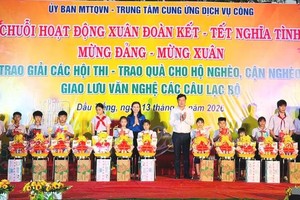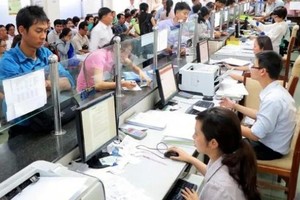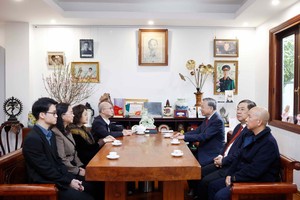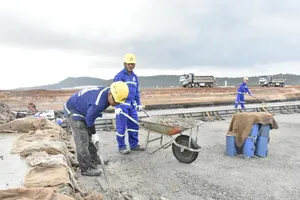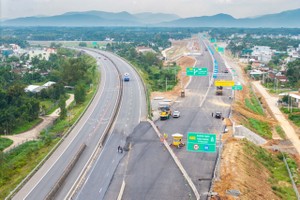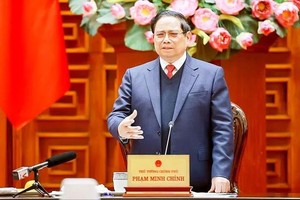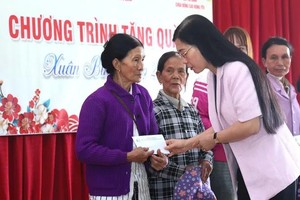The Government and local authorities from 63 cities and provinces across Viet Nam held an online conference yesterday to discuss a number of the country's key socio-economic issues.
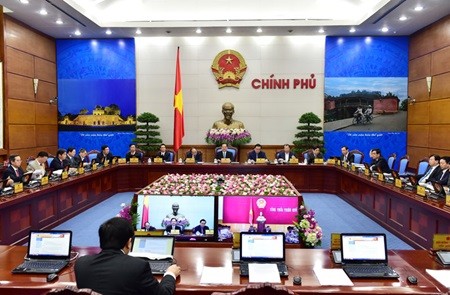
Chaired by Prime Minister Nguyen Tan Dung, the conference aimed to review the implementation of numerous socio-economic objectives for the year 2015 and discuss solutions to achieve objectives in the year to come.
Minister of Planning and Investment Bui Quang Vinh said the year 2015 saw strong growth of the country's industrial sector and robust growth of foreign direct investment (FDI) enterprises.
The implementation of newly approved laws by the National Assembly aimed to improve Viet Nam's business environment, public confidence in the macro-economy and the finalisation of numerous trade deals, notably the Trans Pacific Partnership (TPP) and the EU-Viet Nam trade agreement have all contributed significantly to this year's GDP growth rate of 6.7 per cent, the highest recorded in the last five years, according to the minister.
Minister of Agriculture and Rural Development Cao Duc Phat said in spite of El Nino's prolonged effect, the country's agricultural sector still managed to show positive growth and maintain high export volume compared to previous years.
Phat said Viet Nam must focus on the investment and production of key agricultural products it has competitive advantages over other countries to boost exports. In the domestic market, the most important objectives for the country's agriculture sector were the fight against the use of banned substances and improve food safety standards.
For the year to come, the country's top priority was to maintain the macroeconomic environment and bolster economic growth with a focus in major issues including monetary policies, banking activities, public investment and administrative reforms.
In addition, the country will continue to work on socio-economic goals such as increasing the amount of hospital beds to a ratio of 24.5 per 1000 people, social insurance for 76 per cent of the population, industrial zones with adequate waste treatment system to 85 per cent and forest cover to 40 per cent.
Chairman of the Ha Noi People's Committee Nguyen Duc Chung raised his concerns over the capital's traffic situation, which has been getting progressively worse in recent years.
Chung said every year there was an average of 18,000 to 22,000 newly registered motorbikes and 6,000 to 8,000 cars. By the year of 2020, the city's infrastructure would have to handle nearly one million private cars and seven million private motorbikes.
The chairman asked the Government to support the city's efforts in finding a long-term solution to reduce the number of private transport vehicles.
From the country's largest economic hub, Chairman of HCM City People's Committee Nguyen Thanh Phong urged the Government to step up efforts to help the business sector to prepare for major international trade deals such as the TPP and the EU-Viet Nam trade agreements.
He said measures must be taken to provide support for the country's numerous industries, which would have to face fierce competition once said trade deals took full effect.
Phong called for more ODA funds to invest in the city's major infrastructure projects, which he said would in turn boost the city's future development.
